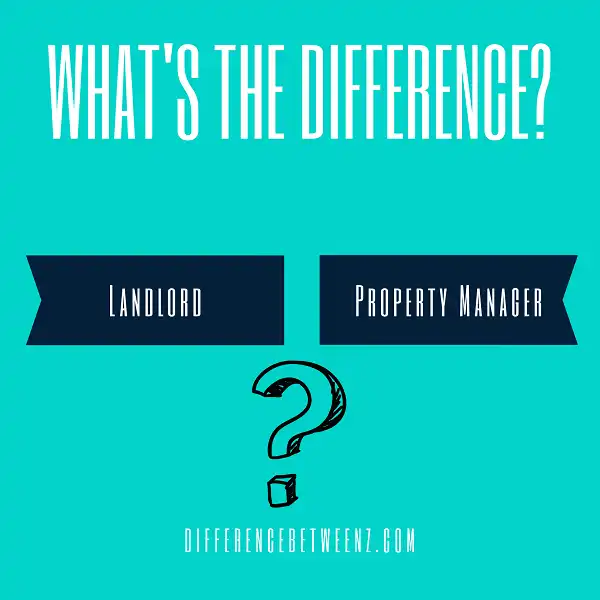Are you looking to rent out your property but not sure if you need a landlord or a property manager? If so, you’re not alone. Many landlords struggle with the decision of whether they should manage their own rental properties or hire someone else to do the job for them. The good news is that it doesn’t have to be a difficult choice: both roles come with their own unique set of advantages and disadvantages that can work for different types of landlords. In this blog post, we’ll explore the differences between being an independent landlord and hiring a professional property manager so that you can make an educated decision about which option will benefit your rental business the most. Read on to learn more!
Who is Landlord?
A landlord is a person who owns or manages real estate and collects the rent or other payments from tenants. Landlording can often be a lucrative business and requires knowledge of land leases, property law, taxes, and other local regulations. Landlords also manage relations between tenants, such as addressing complaints or enforcing rental agreements.
Landlords must also ensure that their rentals abide by safety regulations, respond to repair requests in a timely manner, and generally look after their property. Although landlording is often associated with mom-and-pop operations like family units operating a single rental house, certain large corporations own and manage substantial real estate portfolios for significant profits.
Who is Property Manager?
Property Managers are professionals responsible for managing rental properties on behalf of their clients. They commonly handle the day-to-day operations as well as finding and vetting tenants, collecting rent, maintaining the property, and dealing with any tenant complaints. Property Managers also analyze data to ensure peak performance in terms of marketability and cash flow.
Property management requires knowledge of a wide range of responsibilities, from legal compliance to financial oversight to marketing management, making it an important role in keeping any rental properties running smoothly. Property Managers add value by using their expertise and experience to make sure that both property owner and tenant needs are satisfied efficiently and correctly.
Difference between Landlord and Property Manager
Landlords and property managers perform different roles in the rental industry.
- Landlords are typically involved with the ownership of a rental unit, while property managers are more commonly employed to take care of the day-to-day operations of a particular structure or set of buildings.
- Landlords tend to focus their efforts mainly on leasing out units, collecting rent, and handling any legal issues that arise from renting properties.
- On the other hand, property managers tend to be responsible for things like providing regular maintenance and repairs to rental units, managing tenants’ leases and deposits, conducting tenant background checks, dealing with tenant complaints and evictions, overseeing taxes related to rental income and filing other necessary paperwork.
Landlords and property managers may also be involved in marketing vacant rentals as well as ensuring tenant compliance with lease agreements.
Conclusion
Although a landlord and property manager may seem to have the same job, there are actually several key differences between the two. A landlord is typically an owner of multiple properties who has hired a property manager to oversee day-to-day operations. A property manager, on the other hand, is usually responsible for managing just one property. Another difference is that landlords typically take a more hands-off approach to their properties, while property managers are more involved in the day-to-day management. Finally, landlords generally don’t provide services such as marketing or maintenance, whereas property managers often do. If you’re considering becoming a landlord or hiring a property manager, it’s important to understand these distinctions so you can make the best decision for your situation.


